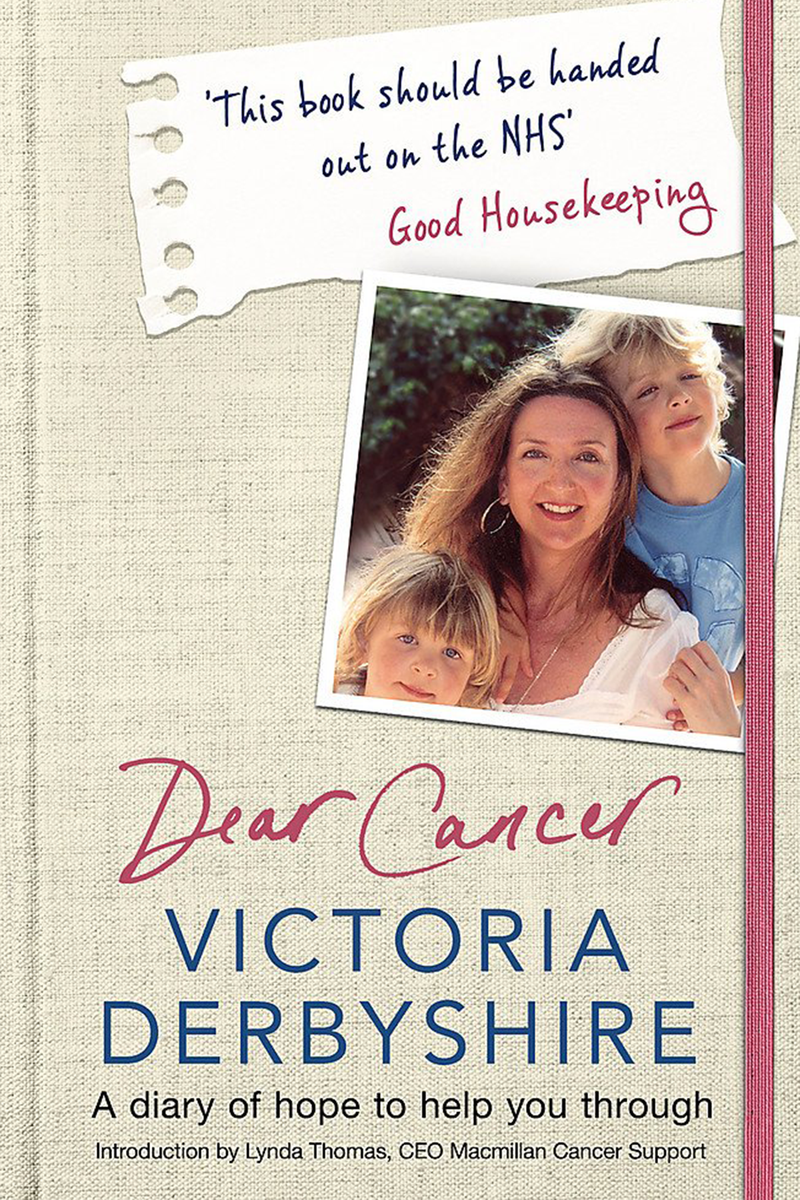
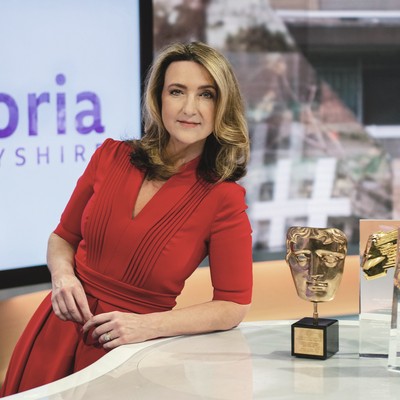
Chapters In My Life: Victoria Derbyshire
Chapter One
Growing Up & Experiencing Domestic Abuse
“I was born in Bury in Lancashire, but when we were young we moved to a house in Rochdale. I have a younger brother and sister and, while I can’t speak for them, I’d say my mother was a very loving, supportive parent and my father not. He could be violent at times, and it’s definitely shaped who I am today. When it was happening, we didn’t know to call it ‘domestic abuse’. We’d never heard of refuges – it was often just referred to as ‘a domestic’, a row between a couple that the police were rarely interested in getting involved in. I even have my mother’s notes from when she used to go to the GP with bruising, and it would be marked down as ‘husband trouble’ – not assault or anything like that. Thankfully we know so much more and are far more aware now. I suppose it’s meant I’ve been drawn to certain stories around domestic abuse – including my documentary for Panorama – but only when it’s felt editorially relevant. I know how important it is to spread awareness: it’s astonishing that nearly two women are killed every week by a partner or former partner. I almost feel we should be marching on the streets about it.”
Chapter Two
Getting Into Journalism
“I’m not one of those people who thought I’d always be a journalist. I didn’t even know what that was growing up. My parents’ favourite paper was the Daily Express and we did listen to the Radio 1 breakfast show, but beyond that we never really watched the news or anything. However, I’ve always been a voracious diary keeper – so in some senses I’ve always wanted to record the facts of life, at least of my own life. At university I wrote for the student newspaper, but I soon realised I wasn’t much of a writer. I started looking at my options and found a post-graduate course in broadcast journalism which sounded like it might be interesting. In the meantime, I also got some work experience at a community radio station – I went every Sunday and they let me read out some news snippets I’d collated from the papers.
“After the post-grad, I found a job as a reporter at BRMB radio in Birmingham. It was a small commercial radio station, but it had big listening figures and a small news team, so it meant I was sent out on a lot of big stories early on. It was daunting and nerve-wracking, not knowing what story I’d be sent on next, but it was also the best way to learn. I just had to get on with it.”
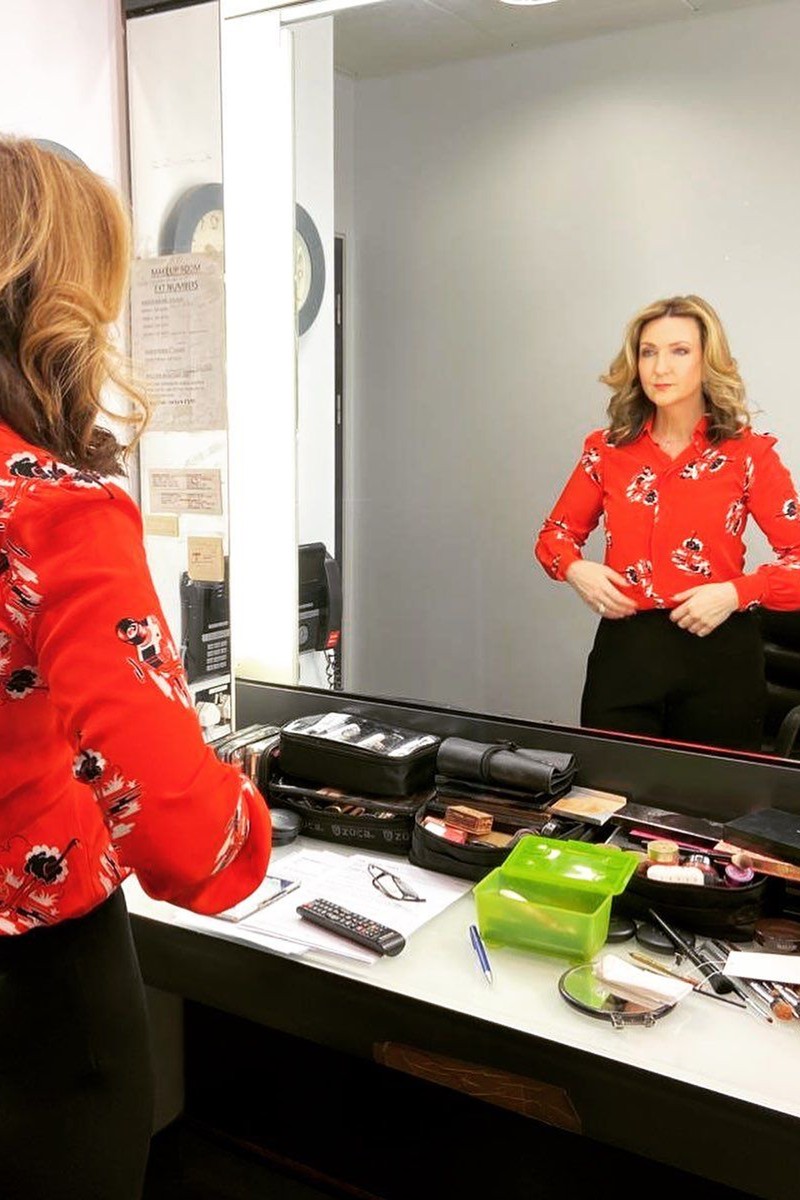
Chapter Three
Getting Into The BBC
“A year later, I applied for a job at BBC Coventry & Warwickshire Radio (CWR) before moving onto BBC GMR in Manchester when they advertised for a new presenter to join their breakfast team. Presenting felt like the next logical step – it had never been part of a grand strategy, I just really enjoyed it. In 1998, I joined Radio 5 Live where I deputised for people like Jane Garvey – which is mad to think about. I’d sent off an old cassette to the bosses there offering myself for any stand-in shifts but I got a call asking me to go to London to meet them. They told me Jane was going to do a TV programme for three months, so they asked if I wanted to be her deputy. It wasn’t what I expected to hear at all, but I was thrilled.
“I loved my time at 5 Live. I covered some amazing stories while I was there: 9/11, the Paris Concorde crash, general elections and the Olympic Games. I started on the breakfast show and then moved to the mid-morning programme, and I just loved the audience. We had exclusive interviews and phone-ins – and while we didn’t exactly solicit opinions from the audience, we were interested in their experience. It showed me nothing is ever black or white. There’s always another side to the story and it taught me to have enormous respect for listeners.”
Chapter Four
Family Life & Breast Cancer
“On a Sunday night in August 2015, I suddenly noticed in the mirror that my right breast was lower than the left and it looked like the nipple was pulling back and looking a bit inverted. I didn’t worry about it too much but the next morning I Googled ‘inverted nipple’ and it came up with many things, including breast cancer. At work that day, I wasn’t myself and I went to the GP in the afternoon. He examined me and said he would refer me for an emergency appointment at the hospital. I started crying immediately because I just knew. Lo and behold two weeks later I was told it was malignant and in my own head, I was sure I was going to die. It takes many more weeks to get a proper prognosis, but thankfully we found out my cancer was treatable – albeit through a mastectomy, six rounds of chemotherapy and 30 sessions of radiotherapy. I was up for all of it if it meant I could be alive. The NHS was amazing and the reason I’m alive today.
“My husband Mark and I had already been together 17 years before we decided to get married in 2018. We did it because I’d survived breast cancer and it had been a discussion from the beginning that if we made it through, we’d go for it. Our two boys also really wanted us to get married, so that made it feel right, too. It was a great big party for our family and friends, and the NHS choir came to perform. In his speech, Mark said it might be tempting to see our wedding as the end of something, but that really it was the start of the next chapter – and I totally agreed. Mark and I have balanced the demands of family life with our careers by being a team. When either of us has been busy, the other has stepped in. Luckily, it’s worked well in that I’m often busy in the mornings – so Mark handles that – and I come back in the afternoon to take over.”
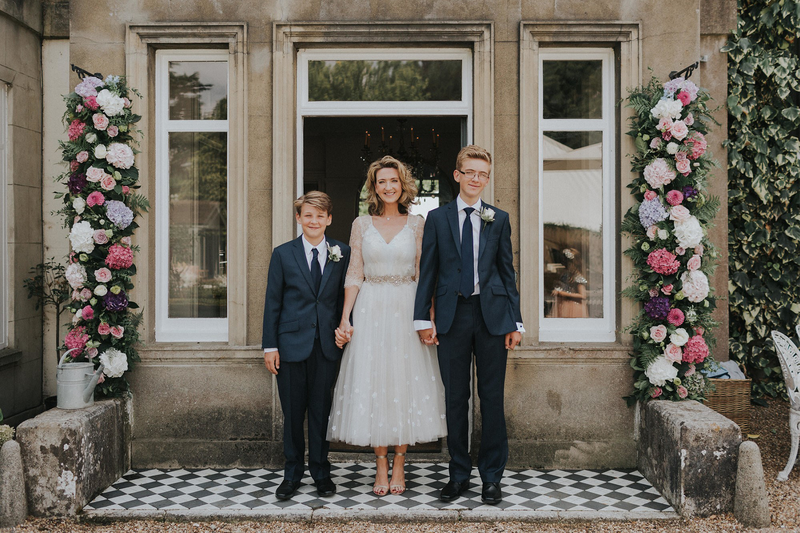
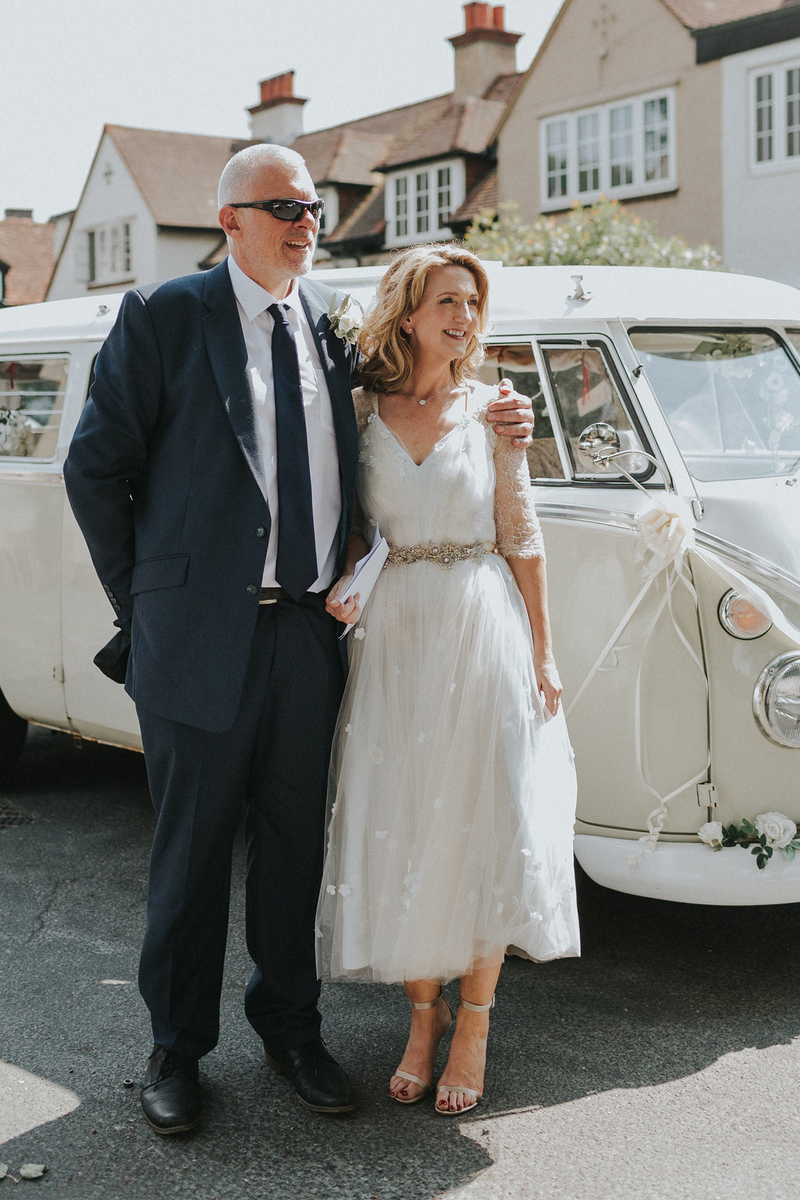
Chapter Five
Writing Dear Cancer: A Diary Of Hope To Help You Through
“The literary agent Felicity Blunt emailed me to ask whether I’d be interested in writing a book about my experiences with cancer. I was nervous that I wasn’t really a writer – which is where the idea for the diarised form came from. As an ardent diary keeper, it felt much more natural to do it that way. I wrote 3,000 words to start with and Felicity took it to various publishing houses. I was quite disciplined with the writing process in the end – I was lucky to have so many diaries to go back to – and I ended up loving it. The response really blew me away, especially the number of people using the book who weren’t going through cancer themselves, but the family and friends touched by cancer, too. They said it gave them an insight into what people with cancer go through. I’m just glad people found it useful.
“Raising awareness and working with charities like Macmillan, Cancer UK and Future Dreams will be something I continue with for as long as I can. My own experience has given me such perspective in life generally – I still sweat plenty of the small stuff at work, but other things I find much easier to let go. I also started putting less in my pension. I didn’t know how long I’d be around so I figured I should have some fun now. I want my life now to be about having great experiences with the people I care about.”
Chapter Six
The Victoria Derbyshire programme
“Louisa Compton – my editor at 5 Live – and I were seeing a lot of success with our morning show and it led to me being offered another job. I half considered it and decided to chat to James Harding, then head of BBC News. I suggested staying at the BBC and moving from radio to television. There was silence in the room, but he soon said it was a brilliant idea. I told him I had to decide about the other job in three days’ time; by the Thursday of that week, he said my show had the green light. We were tasked with producing original journalism for what the BBC called their ‘under-served audiences’ – younger people, with much broader backgrounds.
“I never felt pressure being the face of the show. The only time I remember feeling self-conscious was when I was in the middle of treatment and had lost my hair. It was the first time I had to wear a wig on air and I worried about whether people would notice or what they might say. Of course, no one really noticed and, when it did become common knowledge, everyone was so kind.”
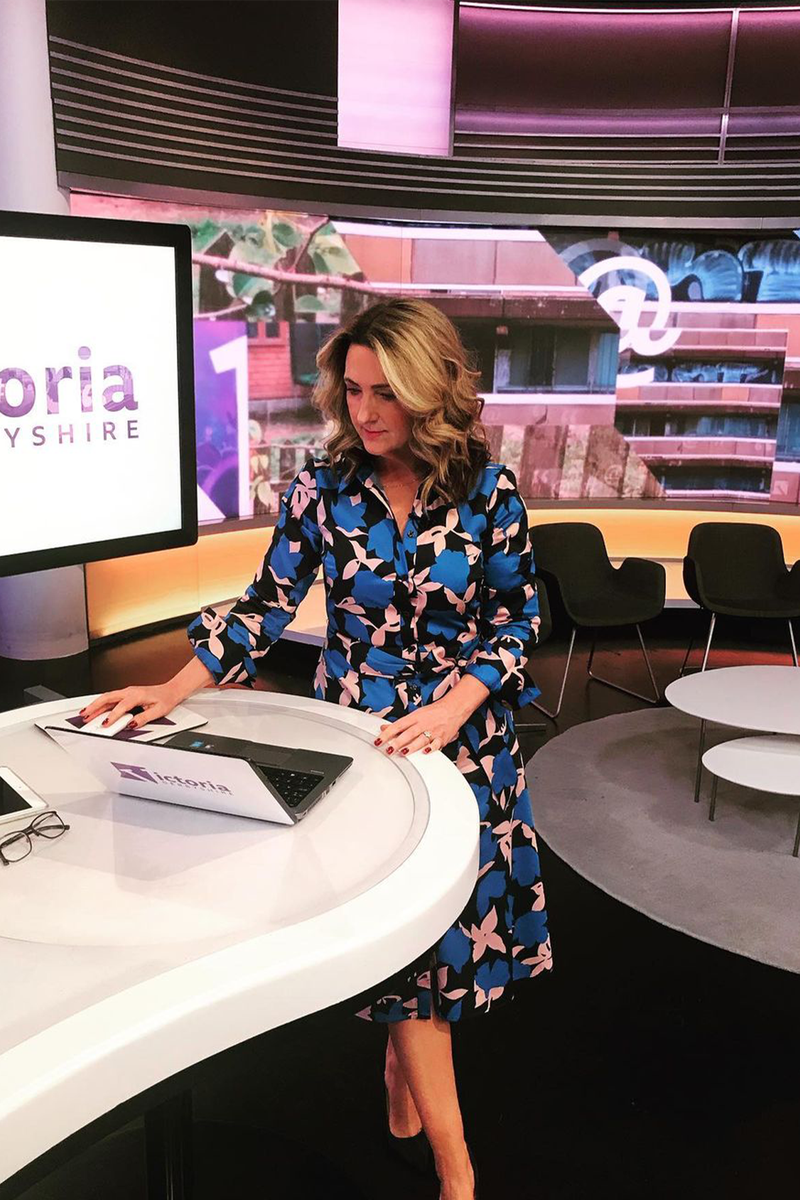
The Next Chapter
“The show ended in 2020 and I’ve since moved over to presenting regularly for television on BBC News. A lot of that has been during the pandemic and various lockdowns – where I like to think we’ve played a pivotal role in bringing people the facts as we knew them. We had such a responsibility; people were tuning in in their millions and we barely knew more than they did.
Whatever comes next, I’m ready for it. The most important thing is staying healthy and living life to the full. It might sound trite but, while I care so much about my work, I also want to spend as much time as I can with my husband, our boys, our friends and family – and I need to stay alive for all of that. I don’t know what the road ahead looks like but I’m fine with that. I’m just happy to be here.”
Dear Cancer: A Diary Of Hope To Help You Through by Victoria Derbyshire is available to buy now.
Watch Victoria on BBC Two, BBC News Channel and BBC World News on weekdays from 9am to 11am.
Follow @VicDerbyshire on Instagram.
DISCLAIMER: We endeavour to always credit the correct original source of every image we use. If you think a credit may be incorrect, please contact us at info@sheerluxe.com.
